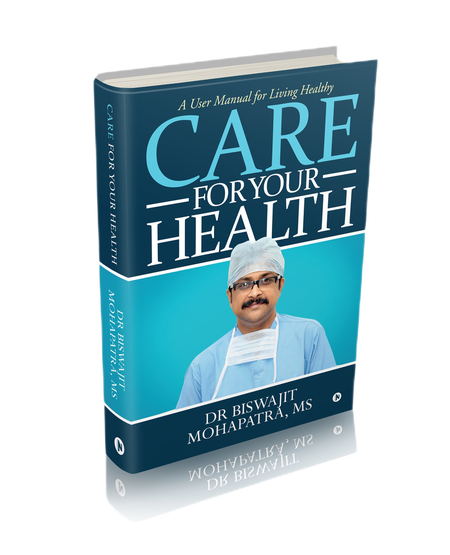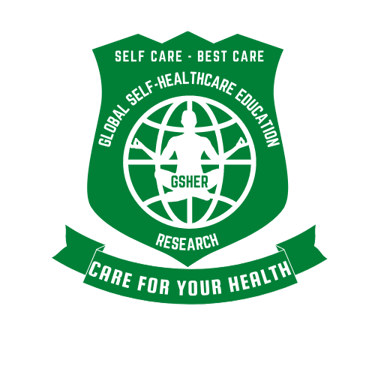Empowering Health through Knowledge vs. Charity Healthcare: Finding Balance in the Age of Insurance and Free Health Card.
Instead of giving someone a fish, teach them how to fish.


In an age marked by technological advancements, accessibility to healthcare has seen remarkable improvements. Initiatives such as BSKY in Odisha and Ayushman Bharat in India have aimed to provide comprehensive health coverage to millions of people, mitigating financial barriers. While these programs undeniably play a crucial role in improving healthcare accessibility, there is a growing concern that they may inadvertently foster a culture of dependency and neglect individual responsibility when it comes to health. In contrast, empowering individuals with knowledge about their bodies and minds can be a game-changer in promoting holistic well-being. We at GSHER are delving deeper into this critical debate.
The Rise of Health Insurance and Free Health Cards
The introduction of health insurance schemes like BSKY and Ayushman Bharat has undoubtedly been a significant step towards achieving universal healthcare coverage. These initiatives offer financial protection to individuals, particularly those who were previously excluded from quality healthcare due to financial constraints. They have the potential to save lives and alleviate suffering, addressing a crucial societal need.
However, there is a growing concern that these programs might inadvertently discourage individuals from taking personal responsibility for their health. The convenience of having a health card or insurance coverage can lull people into a false sense of security, leading to neglect of preventive measures and healthy lifestyle choices.
It can also result in overburdening the healthcare system, as individuals might be inclined to seek medical attention for issues that could have been easily prevented through lifestyle modifications.
The Charitable Approach: Health Camps and Free Services
On the other side of the spectrum, there are various charitable initiatives, such as health camps and free health services, that aim to bridge the healthcare gap. These efforts often target underserved communities and provide much-needed medical assistance to those who cannot afford it. They serve as a lifeline for many who would otherwise go without essential healthcare services.
While charity-driven health services are commendable and necessary, they too have their limitations. They often rely on external funding and resources, which can be unpredictable and unsustainable. Additionally, they may not address the root causes of health disparities, as they primarily offer treatment rather than prevention or education.
The Empowerment Perspective: Knowledge is Key
In contrast to the charity-driven approach and the dependence on insurance and health cards, there is a compelling argument for empowering individuals with knowledge about their health. Knowledge is the cornerstone of personal responsibility, and when people understand their bodies and minds, they are better equipped to make informed decisions about their health.
Empowering individuals with health knowledge includes educating them about the importance of preventive measures, healthy lifestyle choices, and regular check-ups. It encourages self-awareness and fosters a sense of ownership over one's well-being. When people take proactive steps to maintain their health, the burden on the healthcare system is reduced, and overall health outcomes improve.
Striking a Balance
Striking a balance between providing access to healthcare and fostering personal responsibility is essential. Here are some steps that can help achieve this equilibrium:
1. Health Education: Incorporate comprehensive health education into school curricula and community programs to ensure that individuals are well-informed about their health.
2. Preventive Care: Promote preventive healthcare measures, such as regular check-ups, vaccinations, and screenings, to catch issues early and reduce the need for costly treatments.
3. Insurance with Responsibility: Encourage individuals to view health insurance as a safety net rather than a primary source of healthcare, emphasizing the importance of proactive health management.
4. Charity with Empowerment: Charity healthcare organizations can prioritize health education alongside free services, empowering recipients to take charge of their well-being.
5. Community Engagement: Foster a sense of community responsibility for health by organizing local health awareness programs and initiatives. We at GSHER are committed to providing holistic health awareness camps on demand.
In an era where healthcare options are more abundant than ever, it's crucial to remember that personal responsibility for one's health should never be sacrificed in favour of short-term benefits.
The Role of Gsher: Advocating Empowerment
At Gsher, we are dedicated to advocating the path of empowerment when it comes to health. We believe that while programs like BSKY and Ayushman Bharat are essential for disease care accessibility, they should be complemented with initiatives that encourage personal responsibility.
By providing individuals with the knowledge they need to make informed choices about their health, we can create a healthier and more self-reliant society. Empowerment fosters a culture of well-being that extends beyond healthcare, leading to happier, more fulfilled lives.
The debate between empowering individuals with health knowledge and relying on charity and insurance programs is not an either-or proposition; both have their merits and roles to play in society. While charity initiatives and health insurance schemes are crucial for immediate healthcare needs, empowering individuals with knowledge is an investment in long-term well-being.
In the era of health insurance and free health cards, it is essential not to forget our individual responsibility towards our own health. Striking a balance between these approaches is the key to creating a society that is not only healthy but also self-reliant and informed about its well-being.
If you resonate with our mission and wish to extend a helping hand, please reach out to us at 9437042490. Let's collaborate, inspire, and make a difference in the world of self-healthcare education.
One can visit the GSHER House at HIG-227, Co-operative Colony, Chhend-760015
Sincerely,
Dr. Biswajit Mohapatra, MS,FMAS
Chairman
GSHER
9437042490

A Course Specially Designed for You
More than 7 hours of information.
Blueprint For Living Healthy
Now @ 70% discount only for a few days


